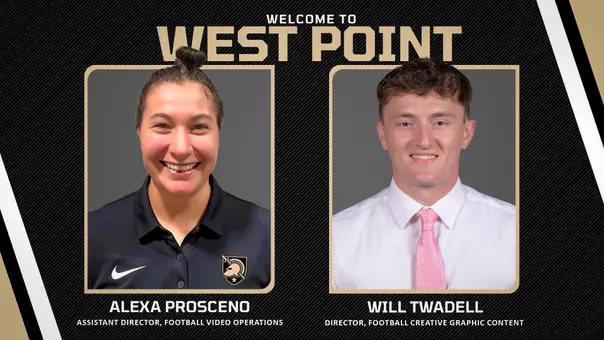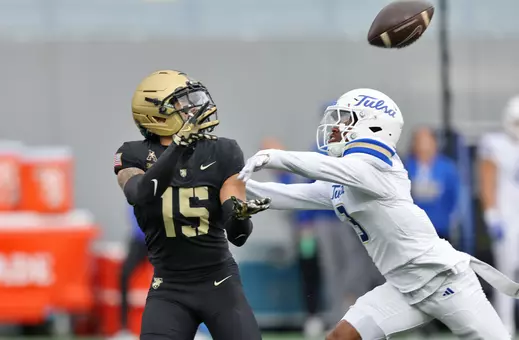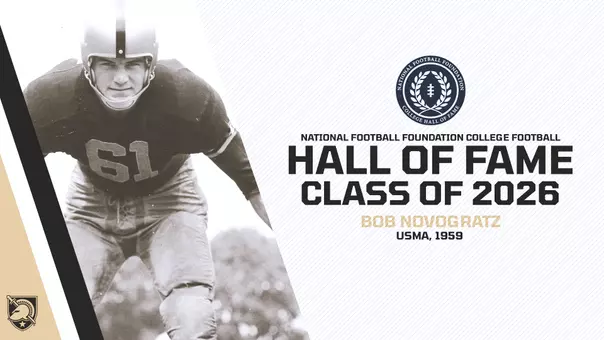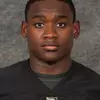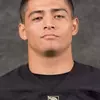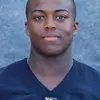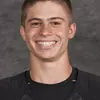Army West Point Athletics
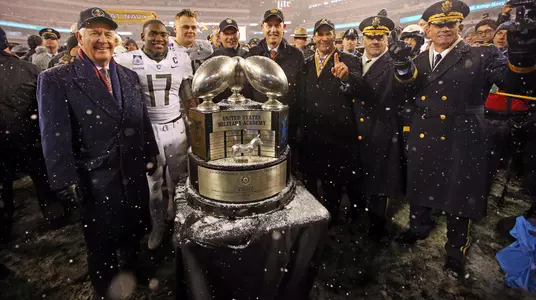
Feinstein's Findings: CIC Back at West Point
December 10, 2017 | Football
New York Times bestselling author, John Feinstein, is back for another season with the Black Knights and will report in after each football game during the 2017 season. Feinstein newest book titled, "The First Major,--The Inside Story of the 2016 Ryder Cup," has recently been released. Feinstein's weekly report will be posted to GoArmyWestPoint.com following each battle on the gridiron.
Where to begin…
How about with that long, frigid, snow-covered sigh of relief that engulfed the Army sideline—not to mention the entire Corps of Cadets—when Navy kicker Bennett Moehring's last second kick faded just left of the goal post at the south end of Lincoln Financial Field on Saturday evening?
Or, the joyful look on the faces of every one in uniform—football or military—in the Army locker room as the Commander-in-Chief's Trophy—all 170 pounds of it—was lugged inside for the first time since 1996?.
"I might just put this on the hood of my Tahoe and drive it up the New Jersey Turnpike tomorrow," Superintendent LTG Robert Caslen told the players.
He might not have been kidding.
It was Bob Sutton, who until Saturday was the last coach to win the CIC Trophy at Army, who once said: "The most desperate team wins the Army-Navy game."
Saturday was about two desperate teams. The entire game was played in a swirling snowstorm with the field getting harder and more slippery as the sky darkened and the snow—like the two teams—refused to quit. Amazingly, neither team turned the ball over during the long day's journey into a snowy night.
Just as it was difficult for anyone at Navy to truly understand the heartbreak and frustration at Army during the infamous streak that last through 14 straight Navy victories, it was almost impossible to understand the disbelief felt in Annapolis when Army finally put an end to that reign of futility a year ago.
What's the line from the old song? "You don't know what you've got till it's gone?"
The Navy players and coaches couldn't believe their run of domination was over. They were stunned. Angry.
And desperate.
The Black Knights were thrilled to finally sing second again, but the mission wasn't complete and they knew it wouldn't be until they'd given General Caslen the chance to stick the CIC Trophy on his hood. They took step one in that direction emphatically with the whipping of Air Force in Colorado Springs five weeks ago. But the rock still wasn't up the hill. It wouldn't be until they got to sing second again.
And so, when they charged from the tunnel into the snow on Saturday they too were desperate.
What followed was three hours of desperate, hang-on-for-dear-life football.
The Black Knights began the way they have so often this season, putting together a grinding 11-play, 68-yard drive that took almost seven minutes and included coach Jeff Monken going for a fourth-and-one on the Navy 5 and Kell Walker picking it up. Quickly, it was 7-0 Army. Little did anyone know that it would take the Black Knights more than 48 minutes to score again.
No way was a team as desperate as Navy going to go down easily. Navy coach Ken Niumatalolo had played his cards as close to the vest as possible leading up to the game, refusing to reveal whether he would start Zach Abey or Malcolm Perry at quarterback. The consensus was that he'd start Abey, the junior who'd been the starter all season until injuries slowed him.
Perry—who was also recruited by Army—had come to Navy as a quarterback, but had been moved to slotback this season because he simply had too much breakaway speed to not be on the field. Abey was a bull, a fullback-like runner who had more than 1,000 yards rushing. Perry was completely different, someone who could score at any moment from anywhere on the field.
Perry had replaced the injured Abey in the SMU game and had only rushed for 282 yards in that victory, Navy's only win in six games coming into Philadelphia after a 5-0 start. Perry had tweaked an ankle late in the game and Abey was back in charge at Notre Dame.
The consensus was that Niumatalolo would go with Abey and move Perry back to slotback in order to have two real and different threats on the field. Niumatalolo had other ideas.
He wanted the ball in Perry's hands 25 to 30 times, not 10 or 12. So, he decided two weeks ago to start Perry and use Abey in a cameo role.
It worked—almost. Perry was brilliant, rushing for 250 yards on 30 carries. He has an innate ability to make tacklers miss and he quickly took the Mids to a field goal to answer the opening touchdown and then, midway through the second quarter, on what was a quarterback-counter play, he took a step left, cut back right and sprinted through the defense for a 68-yard touchdown run that gave Navy a 10-7 lead.
Midway through the third quarter, it looked as if he was going to strike again, when he again found a hole and was through it quicker than you could say, 'Oh boy, this isn't good.'
It looked as if he'd end up in the end zone 57-yards later, when the slippery turf intervened. Perry slipped for a split-second crossing the 15-yard-line and here came defensive captain John Voit—a lineman, remember—having never given up on the play to bring him down at the 11-yard-line.
To say that Voit's play was huge is a vast understatement. The defense dug in from there and held the Mids to a Moehring field goal that made it 13-7.
The divide between 13-7 and 17-7 is as wide as an ocean. A two-score deficit on that field in that weather might have been too much to overcome. Especially since the Navy defense had pretty much figured out the Army offense after the first drive. With the pitch essentially too risky to even try, Ahmad Bradshaw and the fullbacks—Walker included—had to carry most of the offense. Bradshaw did complete a crucial third down pass—his only attempt of the game--to Calen Holt on the series after Moehring's second field goal.
The Black Knights didn't score on the drive—it ended with Blake Wilson missing a 35-yard field goal on the first play of the fourth quarter—but it enabled the offense to stay on the field for 14 plays and 9:21, which gave the defense a chance to catch its breath and gave the offense some much-needed confidence that it could move the ball.
Which it did, aided by the fact that Navy went three-and-out on the ensuing series, shockingly not running Perry once.
Given a second chance, Bradshaw and the Black Knight didn't fail again. This time, they finished the drive—13 plays, 65 yards and 7:40 off the clock with Bradshaw's 1-yard push into the end zone with 5:10 left. That play was set up by a Bradshaw pitch—the only one of the game—to John Trainor, who tip-toed down the sideline from the nine to just inside the one.
A word here about Bradshaw. His statistics were relatively modest Saturday: 94-yards on 21 carries, unlike some of his spectacular days this season. But there is no way to understate what he has meant to this team the last two falls, not just as a quarterback, but as a leader. He HAD to stay healthy this season with almost no experience behind him at his position. He took hit-after-hit, literally got sick on the field during the Air Force game and kept coming back to take some more hits.
After his score though, the game was far from over. Navy wasn't going to make the mistake of not giving the ball to Perry this time. He rushed the ball eight straight times, slowed only by a low snap that allowed the Black Knights to get to him for a two-yard loss. He single-handedly moved the ball from Navy's 35 to Army's 23 on eight plays, including picking up a 4th-and-3 on which he dropped the snap, snatched the ball up, bounced off two tacklers and somehow picked up 12 yards.
Navy was in field-goal range at the Army 23 with time running down. But, as Bradshaw told his teammates later, that was the moment when Navy "flinched." Just enough as it turned out.
Twice, the Mids were called for false starts. The Army defense rose up to push Navy back. When the snow cleared (just a little) the ball had been moved back to the 31 for Moehring's last second kick. That eight-yard move away from the goalposts was the difference.
Army, as it turned out, was just a little more desperate—inches more desperate.
Most of the players in Army uniforms Saturday weren't yet alive when the Black Knights last one the CIC Trophy. Those who were alive, were still sleeping in cribs. As Monken pointed out before the game, only a handful of those on the Army sideline—assistant coaches John Loose, Scott Swanson and Tucker Waugh and athletic trainer Tim Kelly—who still tells stories about Dennis Michie—were across the street in the old Vet on an equally miserable day in 1996 when Army held off Navy when the Mids, trailing 28-24, snapped the ball eight times inside the Army 10 in the final few minutes and never scored.
The last Navy pass fell incomplete with eight seconds left. Ronnie McAda took a knee and the celebration started.
"Never in doubt, right?" Sutton said in the midst of the postgame delirium. "It was over with eight seconds still left to go."
This one wasn't over until there were zero seconds to go. Army's 9-3 now but the 2-0 against their academy brethren is what matters most. The singing of 'The Song," in the locker room was never louder.
A few feet away from where Monken was standing as the last notes died, long-time Associate Athletic Director Ben Russell stood, holding two blue stickers with the, "AF," emblem on them.
"They were on the trophy case," he said. "I HAD to get them off."
The CIC Trophy is back at West Point. That's assuming it didn't fall off General Caslen's car somewhere south of the George Washington Bridge.
Where to begin…
How about with that long, frigid, snow-covered sigh of relief that engulfed the Army sideline—not to mention the entire Corps of Cadets—when Navy kicker Bennett Moehring's last second kick faded just left of the goal post at the south end of Lincoln Financial Field on Saturday evening?
Or, the joyful look on the faces of every one in uniform—football or military—in the Army locker room as the Commander-in-Chief's Trophy—all 170 pounds of it—was lugged inside for the first time since 1996?.
"I might just put this on the hood of my Tahoe and drive it up the New Jersey Turnpike tomorrow," Superintendent LTG Robert Caslen told the players.
He might not have been kidding.
It was Bob Sutton, who until Saturday was the last coach to win the CIC Trophy at Army, who once said: "The most desperate team wins the Army-Navy game."
Saturday was about two desperate teams. The entire game was played in a swirling snowstorm with the field getting harder and more slippery as the sky darkened and the snow—like the two teams—refused to quit. Amazingly, neither team turned the ball over during the long day's journey into a snowy night.
Just as it was difficult for anyone at Navy to truly understand the heartbreak and frustration at Army during the infamous streak that last through 14 straight Navy victories, it was almost impossible to understand the disbelief felt in Annapolis when Army finally put an end to that reign of futility a year ago.
What's the line from the old song? "You don't know what you've got till it's gone?"
The Navy players and coaches couldn't believe their run of domination was over. They were stunned. Angry.
And desperate.
The Black Knights were thrilled to finally sing second again, but the mission wasn't complete and they knew it wouldn't be until they'd given General Caslen the chance to stick the CIC Trophy on his hood. They took step one in that direction emphatically with the whipping of Air Force in Colorado Springs five weeks ago. But the rock still wasn't up the hill. It wouldn't be until they got to sing second again.
And so, when they charged from the tunnel into the snow on Saturday they too were desperate.
What followed was three hours of desperate, hang-on-for-dear-life football.
The Black Knights began the way they have so often this season, putting together a grinding 11-play, 68-yard drive that took almost seven minutes and included coach Jeff Monken going for a fourth-and-one on the Navy 5 and Kell Walker picking it up. Quickly, it was 7-0 Army. Little did anyone know that it would take the Black Knights more than 48 minutes to score again.
No way was a team as desperate as Navy going to go down easily. Navy coach Ken Niumatalolo had played his cards as close to the vest as possible leading up to the game, refusing to reveal whether he would start Zach Abey or Malcolm Perry at quarterback. The consensus was that he'd start Abey, the junior who'd been the starter all season until injuries slowed him.
Perry—who was also recruited by Army—had come to Navy as a quarterback, but had been moved to slotback this season because he simply had too much breakaway speed to not be on the field. Abey was a bull, a fullback-like runner who had more than 1,000 yards rushing. Perry was completely different, someone who could score at any moment from anywhere on the field.
Perry had replaced the injured Abey in the SMU game and had only rushed for 282 yards in that victory, Navy's only win in six games coming into Philadelphia after a 5-0 start. Perry had tweaked an ankle late in the game and Abey was back in charge at Notre Dame.
The consensus was that Niumatalolo would go with Abey and move Perry back to slotback in order to have two real and different threats on the field. Niumatalolo had other ideas.
He wanted the ball in Perry's hands 25 to 30 times, not 10 or 12. So, he decided two weeks ago to start Perry and use Abey in a cameo role.
It worked—almost. Perry was brilliant, rushing for 250 yards on 30 carries. He has an innate ability to make tacklers miss and he quickly took the Mids to a field goal to answer the opening touchdown and then, midway through the second quarter, on what was a quarterback-counter play, he took a step left, cut back right and sprinted through the defense for a 68-yard touchdown run that gave Navy a 10-7 lead.
Midway through the third quarter, it looked as if he was going to strike again, when he again found a hole and was through it quicker than you could say, 'Oh boy, this isn't good.'
It looked as if he'd end up in the end zone 57-yards later, when the slippery turf intervened. Perry slipped for a split-second crossing the 15-yard-line and here came defensive captain John Voit—a lineman, remember—having never given up on the play to bring him down at the 11-yard-line.
To say that Voit's play was huge is a vast understatement. The defense dug in from there and held the Mids to a Moehring field goal that made it 13-7.
The divide between 13-7 and 17-7 is as wide as an ocean. A two-score deficit on that field in that weather might have been too much to overcome. Especially since the Navy defense had pretty much figured out the Army offense after the first drive. With the pitch essentially too risky to even try, Ahmad Bradshaw and the fullbacks—Walker included—had to carry most of the offense. Bradshaw did complete a crucial third down pass—his only attempt of the game--to Calen Holt on the series after Moehring's second field goal.
The Black Knights didn't score on the drive—it ended with Blake Wilson missing a 35-yard field goal on the first play of the fourth quarter—but it enabled the offense to stay on the field for 14 plays and 9:21, which gave the defense a chance to catch its breath and gave the offense some much-needed confidence that it could move the ball.
Which it did, aided by the fact that Navy went three-and-out on the ensuing series, shockingly not running Perry once.
Given a second chance, Bradshaw and the Black Knight didn't fail again. This time, they finished the drive—13 plays, 65 yards and 7:40 off the clock with Bradshaw's 1-yard push into the end zone with 5:10 left. That play was set up by a Bradshaw pitch—the only one of the game—to John Trainor, who tip-toed down the sideline from the nine to just inside the one.
A word here about Bradshaw. His statistics were relatively modest Saturday: 94-yards on 21 carries, unlike some of his spectacular days this season. But there is no way to understate what he has meant to this team the last two falls, not just as a quarterback, but as a leader. He HAD to stay healthy this season with almost no experience behind him at his position. He took hit-after-hit, literally got sick on the field during the Air Force game and kept coming back to take some more hits.
After his score though, the game was far from over. Navy wasn't going to make the mistake of not giving the ball to Perry this time. He rushed the ball eight straight times, slowed only by a low snap that allowed the Black Knights to get to him for a two-yard loss. He single-handedly moved the ball from Navy's 35 to Army's 23 on eight plays, including picking up a 4th-and-3 on which he dropped the snap, snatched the ball up, bounced off two tacklers and somehow picked up 12 yards.
Navy was in field-goal range at the Army 23 with time running down. But, as Bradshaw told his teammates later, that was the moment when Navy "flinched." Just enough as it turned out.
Twice, the Mids were called for false starts. The Army defense rose up to push Navy back. When the snow cleared (just a little) the ball had been moved back to the 31 for Moehring's last second kick. That eight-yard move away from the goalposts was the difference.
Army, as it turned out, was just a little more desperate—inches more desperate.
Most of the players in Army uniforms Saturday weren't yet alive when the Black Knights last one the CIC Trophy. Those who were alive, were still sleeping in cribs. As Monken pointed out before the game, only a handful of those on the Army sideline—assistant coaches John Loose, Scott Swanson and Tucker Waugh and athletic trainer Tim Kelly—who still tells stories about Dennis Michie—were across the street in the old Vet on an equally miserable day in 1996 when Army held off Navy when the Mids, trailing 28-24, snapped the ball eight times inside the Army 10 in the final few minutes and never scored.
The last Navy pass fell incomplete with eight seconds left. Ronnie McAda took a knee and the celebration started.
"Never in doubt, right?" Sutton said in the midst of the postgame delirium. "It was over with eight seconds still left to go."
This one wasn't over until there were zero seconds to go. Army's 9-3 now but the 2-0 against their academy brethren is what matters most. The singing of 'The Song," in the locker room was never louder.
A few feet away from where Monken was standing as the last notes died, long-time Associate Athletic Director Ben Russell stood, holding two blue stickers with the, "AF," emblem on them.
"They were on the trophy case," he said. "I HAD to get them off."
The CIC Trophy is back at West Point. That's assuming it didn't fall off General Caslen's car somewhere south of the George Washington Bridge.
Players Mentioned
Army vs. Bucknell Women's Basketball Game Highlights
Thursday, January 22
2026 West Point Open (Army Spotlight)
Saturday, January 17
Army Women's Basketball Ericson Feature
Friday, January 02
Wasabi Fenway Bowl Game Highlights
Saturday, December 27

